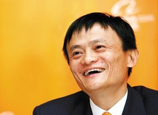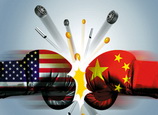
RELAY RACE
In the eyes of Chinese Communist leaders, the reform and opening up process masterminded by Deng Xiaoping in the late 1970s is more like a relay race that must be advanced from one generation to another.
Inspiring motivation and enhancing consensus should be the essential starting point of future reforms, while the spirit of reform and innovation must be integrated into all respects of national governance, according to President Hu Jintao.
The primary impetus of the reforms, analysts say, is the people, while it is democracy that inspires people to pool their wisdom.
Dr. Zheng Changzhong, an expert on Party-building at Fudan University, said, "The Party's new leaders must figure out Chinese people's diversified requests, make a priority list, and advance reforms at proper time and with proper intensity."
Yu Pei, a world history researcher with the Chinese Academy of Social Sciences, believes China can no longer feel its way through future reforms.
"Top-level policy design must be combined with grassroots innovation, while the linchpin of sound top-level policy design is to maintain people's interests, and to respect and inspire the people's driving role in history," said Yu.
During the congress, delegate Chen Derong, Party secretary of Wenzhou City in east China's Zhejiang Province, was crowded by domestic media demanding a timetable for the city's pilot financial reform scheme.
After some 100 private entrepreneurs in Wenzhou were reported to have disappeared, committed suicide or declared bankruptcy after failing to repay an aggregate underground debt worth 10 billion yuan, the State Council authorized the city, the cradle of China's private business, to spearhead financial reform for private lending this year.
A number of ministries have also mapped out plans to facilitate private companies' access to sectors formerly confined to state-owned enterprises, in the sectors involving railway, energy and finance.
Taking the Wenzhou financial initiative as an example of reform consensus, analysts say support from citizens and the political courage of leaders are both required to tackle in-depth problems.
As Chinese officials are thrown to the front line of "deepwater-area" reforms, Hu Jintao more than once stressed the need to take the rule of law as the prerequisite to advance reform, iron out conflicts and maintain stability.
"If the Party hopes to sustain its governance along the socialist path, it must always bear in mind the strategic choice of reforming for the good of the people," agreed Fudan University's Zheng.
(Liu Baosen contributed to the reporting.)

















 Heavy snowstorm wreaks havoc in NE China
Heavy snowstorm wreaks havoc in NE China


![]()
